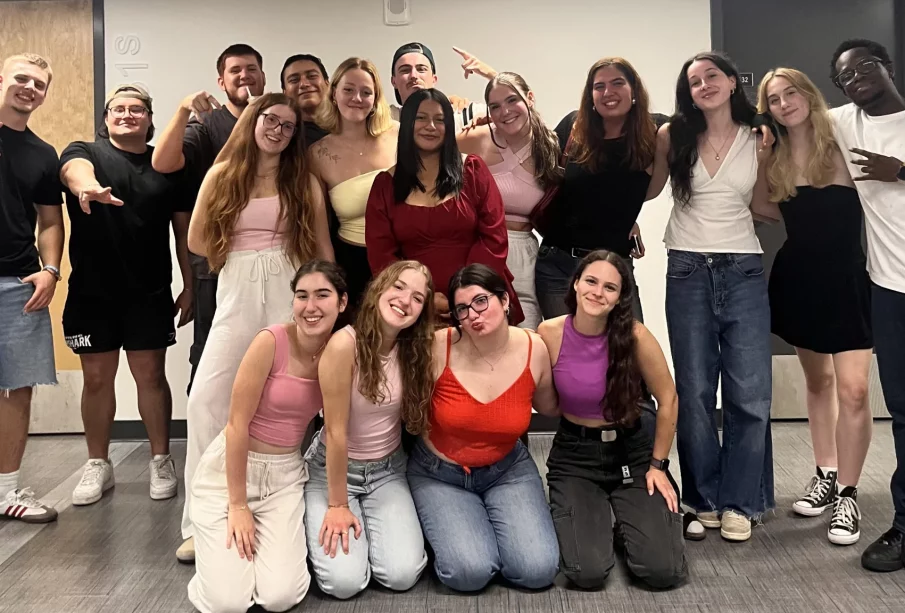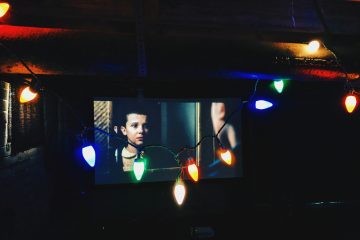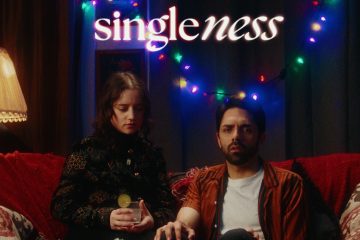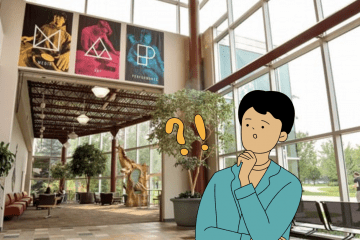The University of Regina hosted 37 students from across Canada for the Explore program, held from June 30 to July 30, 2025. Over the month, students improved their English while experiencing Saskatchewan’s culture.
What is the Explore program?
Explore is a government-run and funded program that has been offered nationally for 51 years. It brings together Canadian and international bursary students to study English communication and explore Western Canadian culture.
To qualify, students must be enrolled in a Canadian university and not be fluent in either of the country’s two official languages.
What does the Explore schedule involve?
Students are divided into three groups: advanced, intermediate and beginner English learners.
The program includes English classes in the morning, Centre for Experiential and Service-Learning career basics badge workshops and mini-Indigenous culture series in the afternoon, with content varying to each group’s English level.
Students are offered off-campus activities like tours of the RCMP Heritage centre, Royal Saskatchewan Museum and Government House, trips to local farms and attending Indigenous events like powwow. These outings promote cultural learning while trips to football games, escape rooms, Activates and SkyPark Amusement park focus fun and team building.
When asked about her favourite activity Sansenagrin said, “My favourite activity was Escape Room because we had to communicate with each other and work together.”
On-campus activities include sports, movie nights, games nights and Multicultural showcases.
Both indoor and outdoor activities are chosen with the goal of offering something for everyone.
“I do go by past feedback about what’s been the most popular (activity) versus not; but I also try to have a variety. I try to cover as much ground as possible,” said Karlie Butler; head of English language programs and supervisor of the Explore program for the past six years.
In addition to activities exclusive to Explore program students, supervisors aim to include other students on campus whenever possible. When students from other programs are visiting, class exchanges are organized to create opportunities for guided or casual conversations.
“We have students from Yucatán on campus right now who aren’t part of the Explore program, so we’re trying to bring them together for some on-campus activities,” said Butler. “Things like that are where we find the most success.”
Why choose Regina?
Butler said, “Students choose Regina because there is a uniqueness to the city and the province, whether it being an agricultural province or our Indigenous culture.”
He added that some students from larger cities are looking for a smaller-centre experience, while others from small towns may find Regina more comfortable than a major urban centre.
Students chose Regina as their centre for various reasons. Some were drawn by the University of Regina’s campus, while others selected it because only a few universities offered an in-person experience. For some, the decision was influenced by friends.
Morean said, “Regina was my first choice because of the landscape and different activities that were offered here comparatively to other cities.”
Cultural Assistants
The program includes student assistants known as cultural assistants, or CAs. These CAs spend the most time with participants—whether in classes, workshops or simply helping them find local spots to explore Regina on their own.
“I call them the backbone of the program,” said Butler regarding the CAs.
One of the on-campus activities, the Multicultural Showcase, features display tables created by the CAs. They share information about their own cultural backgrounds or cultures they find interesting, giving students a chance to learn about a variety of traditions and perspectives.
“They are really nice. They talk to us like we are equals,” said 21-year-old Oriane Tanguay from University of Quebec.
Students also noted that the ESL department introduced Friday lunches with the cultural assistants—an unplanned addition made in response to students’ needs and feedback.
Why choose the Explore program?
Many students were drawn to the program for its English learning component, seeing it as a valuable skill for travel, career advancement and personal growth.
“English is really important in business, and with many companies being bilingual, it’s an asset,” said Morean, who studies human resources management.
“I’m also interested in learning English because I’d like to work in the mental health field,” said Tanguay. “I want to make mental health more accessible by improving my English.”
Marilie Sensenagrin from Montreal joined the program for a sentimental reason.
“My mom did this program when she was young, so I found it interesting,” she said.
Challenges
Many participants were away from home for the first time, which naturally came with challenges.
Some found it intimidating to speak with University of Regina students, while others said understanding English was easier than speaking it in class.
“It was a big challenge because when English is not your first language, you always have to think in French and then translate into English. So, when you talk to people, it’s hard,” said Oriane Aboueuh N’cho.
“It’s easier to understand English, but when it’s time to speak and express yourself, it’s difficult,” said Sensenagrin.
Butler highlighted, “Where it’s hardest for students is to meet what they consider University of Regina students where they have to take initiative to engage.”
According to Butler, the team anticipates that each session may involve supporting a student through homesickness or a medical issue that leads to emergency care. Cultural assistants (CAs) play a vital role in these situations by offering emotional and practical support.
In previous cases, Explore team members have accompanied students to urgent care and visited them for several hours each day to ensure they were not alone.
“There have been some unfortunate growth experiences, like health incidents where students had to navigate even an ER stay,” said Butler.
“The ESL program has been really nice. If we have even a small issue, they tell us to come talk to them and they’ll help find a solution,” said Tanguay. “For most of us, it’s our first time travelling alone and being independent.”
What outcomes can be anticipated?
Dramatic improvement in language ability isn’t guaranteed due to the time constriction of the program. However, confidence boost in English speaking and valuable life skills developments are anticipated.
“We have students who have never been away from their parents and have never done laundry—then they have to do it for the first time. To me, that’s growth,” said Butler.
The workshops have helped students narrow down their career goals by discussing their expectations with peers. They also developed argumentative skills through debates and learned about Saskatchewan sports ahead of attending a Roughriders game.
“A lot of us had some idea of what sector we wanted to go into,” said Anabel Pasqua Morean, a participant from Montreal. “But through talking about the specific characteristics we’re looking for, and hearing what jobs our peers are interested in, it’s helped us narrow down the specific positions we might be best suited for—rather than just a general sector.”
Some students said their willingness to try has increased, while others noticed improvements in fluency.
“I’ve gotten the hang of some key parts of sounding more bilingual, especially through using everyday expressions I’ve picked up,” said Tanguay.
Students Remarks
Four out of five students said they would willingly return to the University of Regina if given the chance. Many said their decision was influenced by the rich campus life and the number of student services offered.
“On campus, a lot of things are accessible by foot, which is different from Montreal,” said Morean.
“Compared with my university, UofR has more student services and seems very community oriented. It seems like a great university to evolve in,” said Tanguay.
When asked to give advice to future Explore program participants, Emy Bouffard said, “Don’t be scared, go for it. You have nothing to lose.”
Pasqua encouraged students to make new connections and make most of the opportunity.
Sansenagrin described her experience by saying, “A lot of memories I will never forget.”







